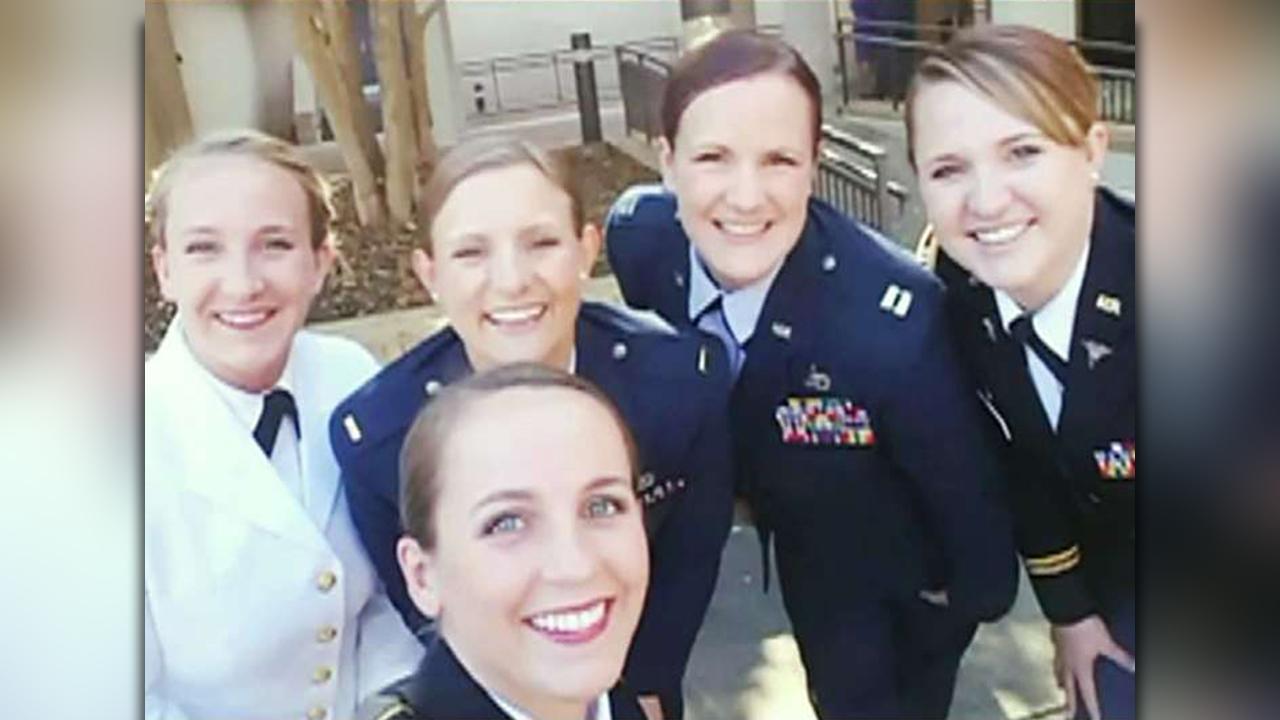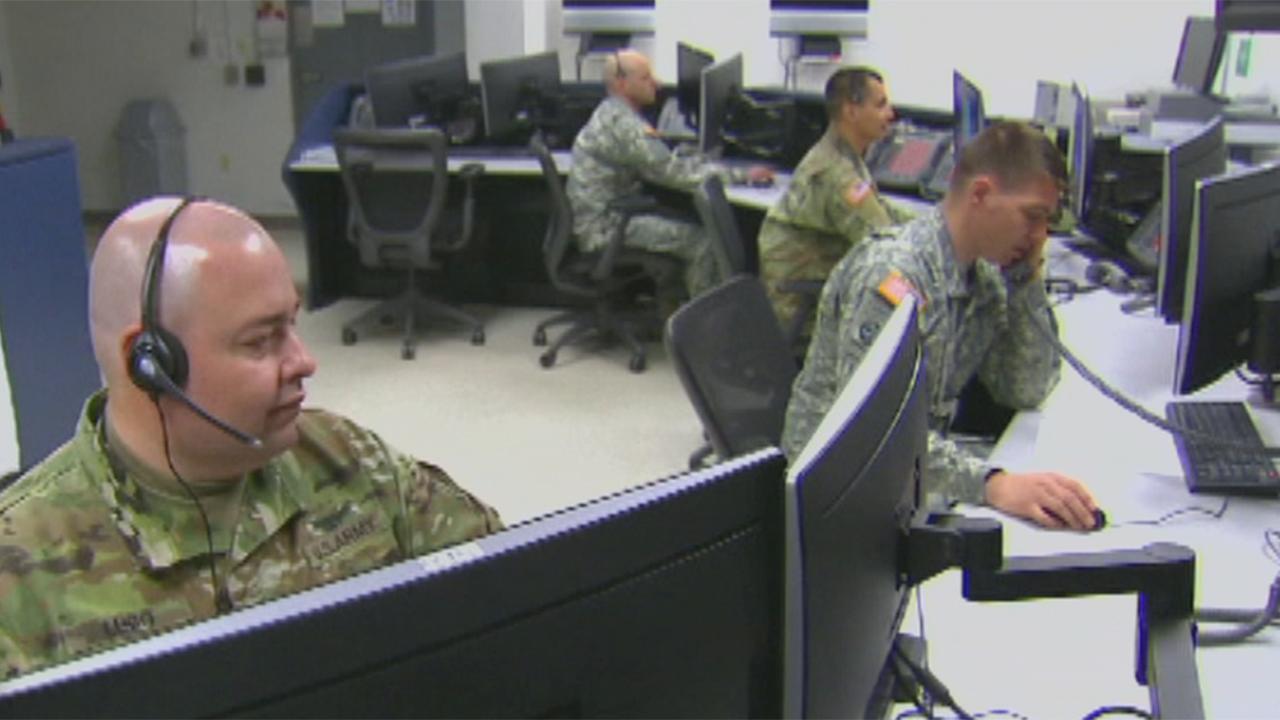Fox News Flash top headlines for July 21
Fox News Flash top headlines for July 21 are here. Check out what's clicking on Foxnews.com
Who are the “hyperfit” women of the military, capable of its most arduous physical and mental courses, and what makes them so competitive?
Army medical researchers have aimed to uncover answers in a just-launched voluntary study.
During early debate on the move to open all combat jobs to women, military leaders raised questions about whether women were up to the jobs or if putting them on the front lines would make units less capable. The Marine Corps sought an exemption to keep some combat jobs closed for precisely that reason, then-Defense Secretary Ash Carter overruled it.

Research scientist Leila Walker, left, assisted by nutritional physiologist Holly McClung, center, as they demonstrated equipment designed to evaluate fitness levels in female soldiers, not shown, this past April at the U.S. Army Combat Capabilities Development Command Soldier Center in Natick, Mass. (AP Photo/Steven Senne)
Women, however, have increasingly made it through the nine-week Army Ranger course, and the numbers of those trying out for other special operations jobs are slowly inching up. The courses have encompassed a number of phases and have run from about nine weeks to a year or two for the most elite commando jobs.
They have involved a wide array of grueling physical fitness tests, combat water survival, day and night land navigation, long road marches carrying heavy packs, extended patrols through various climates and extensive mental, psychological and leadership testing.
In the nearly four years since the Pentagon announced it was opening all combat jobs to women, at least 30 have earned the Army Ranger tab, two have graduated Marine infantry school and three have passed the grueling initial assessment phase for Green Beret training.
“We’re really interested in those elite women that are the first to make it through physically demanding training,” said Holly McClung, a nutritional physiologist at the Army Research Institute of Environmental Medicine in Massachusetts. “The real point of the study is to characterize this unique cohort of women that has made it through these traditionally male trainings.”
The goal, said McClung, has been to identify the attributes — whether mental, physical or psychological — helping the women succeed. By unlocking those secrets, maybe they could help other women compete for the same jobs.
McClung and Julie Hughes, a research physiologist, were planning to have the military women come to an Army base in Natick, Mass., in groups of two or three, and go through a range of tests over three days to identify biological and physiological markers that would help define them as hyperfit. Having several tested at the same time, McClung said, will make it more interesting and encourage competition.
ROYAL AIR FORCE JETS SCRAMBLE TO INTERCEPT RUSSIAN PLANES
“This is a unique historical time,” said Hughes. “There’s this group of women who made it through the training so we want to get them to at least do these observational investigations to explore what makes them unique.”
That breathing test, along with others on their blood, calcium and iron levels, as well as bone density scans and exercise programs, are to be used to determine the women’s physical fitness. Other written tests and interviews would evaluate their mental toughness and psychological resilience.
The women were expected to take three psychological exams designed to determine their grit, hardiness and resilience.
For example, the military version of the resilience test listed statements and asked people to determine on a scale of one to five if the statement was definitely or mostly false, “don’t know,” or mostly or definitely true. Some examples of the statements: I enjoy most things in life; I often feel helpless; I like to have a lot of structure in my life; I carefully plan just about everything I do; it bothers me when my daily routine gets interrupted; and my successes are because of my effort and ability.
Mark Esper, President Trump’s nominee for defense secretary, said the study will be important to help understand fitness and perhaps reduce injury rates. He was serving as Army secretary when this study was first broached.
“My belief is it’s grit — grit gets them through this,” he said. “You have to have a certain level of athletic ability, but they take it to an extraordinary level. These women are tough.”
McClung said she received word on July 12 that the final study was approved. She said that if more women graduate from any of the military training courses, they could be added to the study.
CLICK HERE FOR THE FOX NEWS APP
McClung and Hughes also said they hoped to be able to compare the women’s results with similar testing on men.
“I think we’re encouraged that [the women will] be willing to participate,” Hughes said. “They want to be counted.”
The Associated Press contributed to this report.




